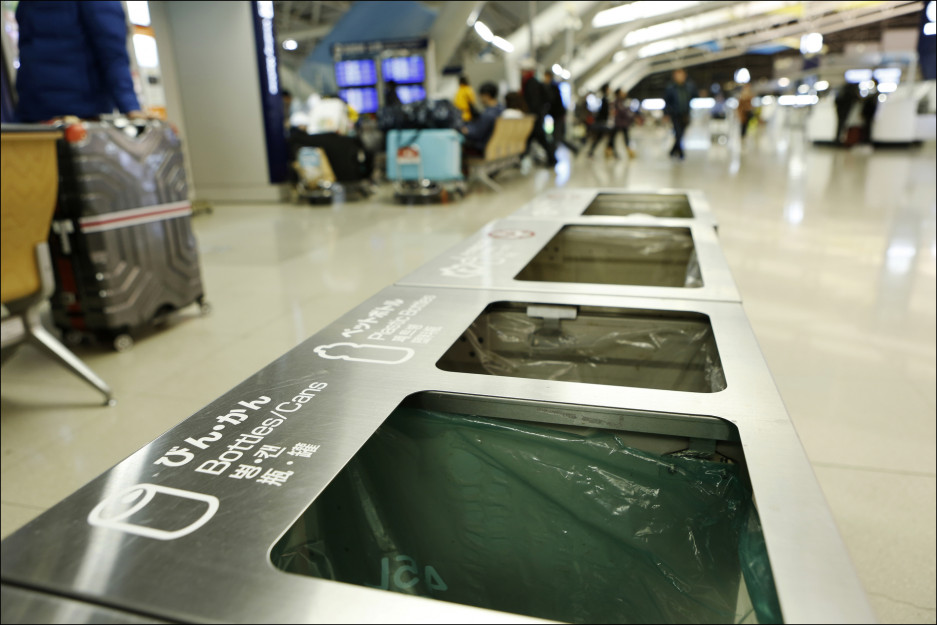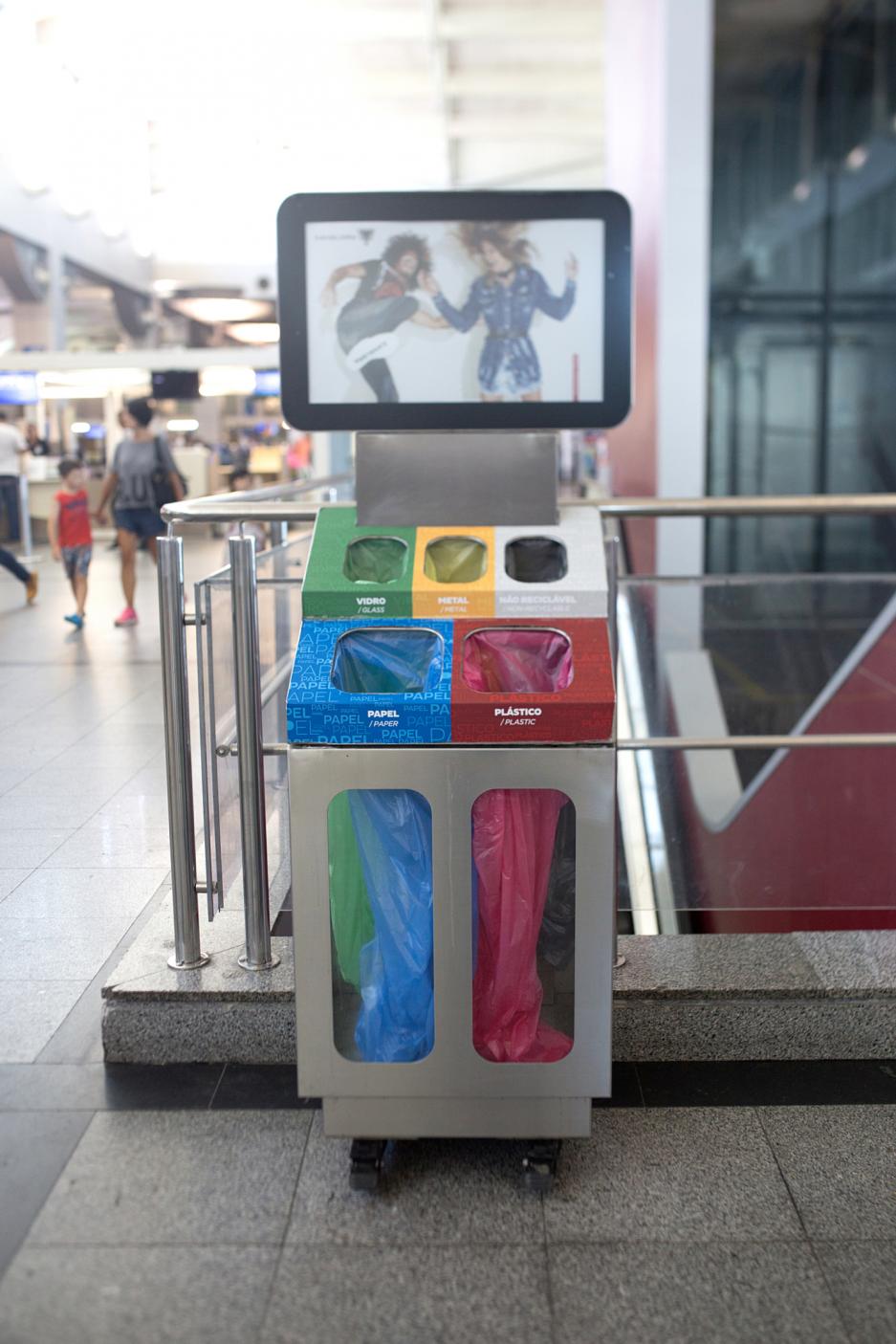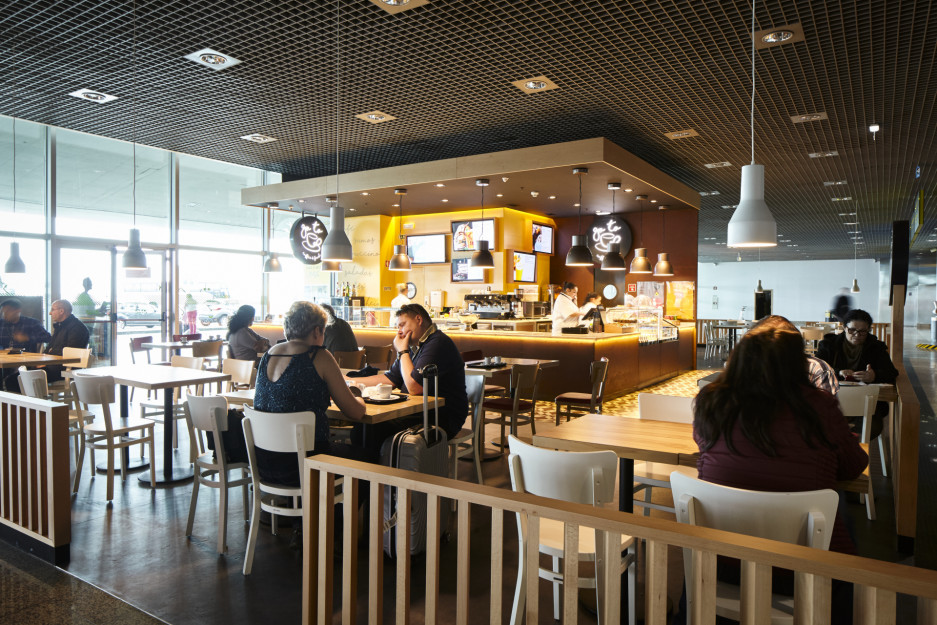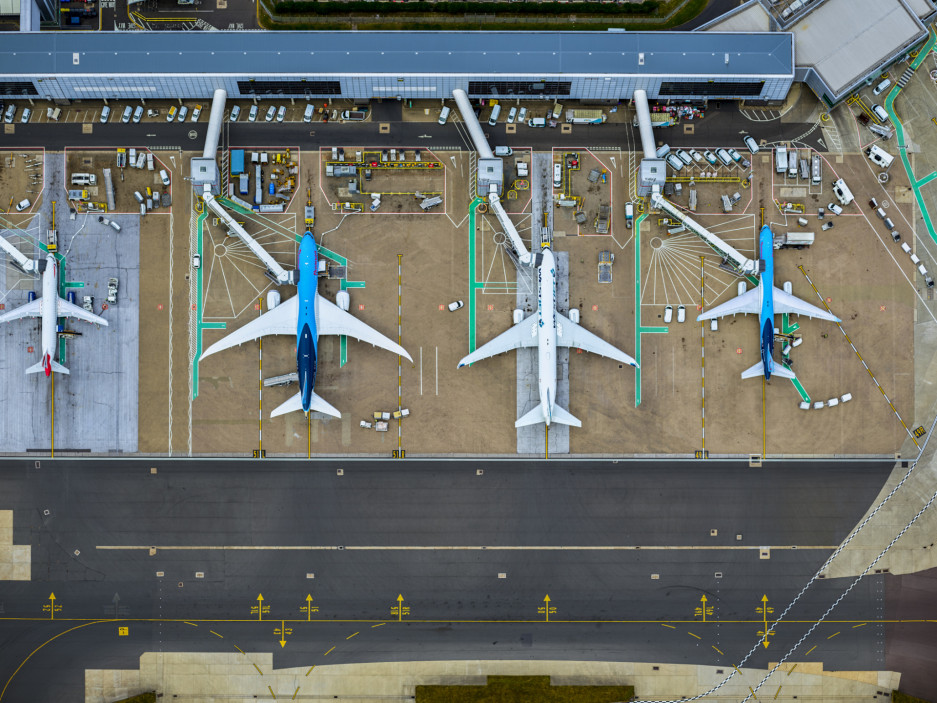
Positive Mobility
eMagTravelling with less plastic: small acts and big commitments

Everyone can act to cut their day-to-day use of plastics. Especially when travelling. Meeting this challenge involves more responsible behaviour by travellers and more solutions from transport companies, both infrastructure operators and service providers. Actors of all types are adapting their models and services to tackle the major problem of plastic’s environmental impact.
A third of plastic waste currently ends up in the soil, forests, seas and oceans according to a report by the World Wild Fund for Nature (WWF). To reverse this trend we need to change our daily habits and we need these changes to be lasting. For passenger transport, this is a collaborative journey that starts with travellers.
Say no to plastic
In 2015, a United Nations study on single-use plastic revealed that the largest portion (36%) of the 400 million tonnes of plastic produced in the world was single-use packaging. This type of waste is commonly produced when snacking on the go and includes bottles, containers, bowls, straws, plastic bags and so on.
A first step in the fight against plastic use when breaking a car journey for a snack, or at stations and airports, involves choosing products that use biodegradable packaging like cardboard, which is increasingly available from travel food outlets. And when we make our own food and bring a picnic, we can use BPA-free stainless steel water bottles, thermoses, glass containers and jars and metal or wooden cutlery — which doesn't come packaged in plastic!

Sort and recycle
Travel and transport industry actors are increasingly aware of this issue’s importance. This applies to air travel in particular, where until recently every aircraft passenger generated over 1.4 kilos of waste per flight according to IATA. Air France, for example, has managed to reduce waste by 4% and recycle or reuse 90% of its non-hazardous waste, including plastics. One example is the headsets distributed passengers. In the past these were thrown away after each flight, but are now collected and, depending on condition, recycled or reconditioned: the initiative has seen some 13 million headsets being reused over the last eight years.
Innovative sorting systems
But infrastructure operators are also joining the fight. One such is VINCI Airports, which teamed up with VINCI Énergies at Vivatech 2019 for an innovation challenge tackling waste recycling. This centred on managing waste, particularly plastics, at security checkpoints, where travellers' personal belongings and cabin baggage are inspected before boarding. The solution from Greedy Station, the startup chosen by VINCI Airports, is an automatic optical sorting system that uses image recognition sensors: waste is placed in a single container after the security check and the machine sorts the items that can be recycled.
This innovative sorting system will soon trialled at Lisbon airport. If the experiment produces positive results, it will gradually be rolled out to all airports managed by VINCI Airports, which already recycle or reuse 42% of passenger waste.
VINCI Airports is also working on a solution with Lemon Tri, another startup present on the VINCI stand at Vivatech 2019. A recycling machine known as Liquid will be installed at Toulon-Hyères airport in France at the end of November. This will make it easier to collect plastic bottles which will be automatically sorted, crushed, with any liquid contents dealt with separately.

London Gatwick airport: recycling pioneer
It is also worth looking at the major efforts undertaken by London Gatwick airport, which joined VINCI Airports in early 2019. Already aligned with the VINCI network's ambitious environmental policy, the British airport has invested €5m in a comprehensive recycling circuit with dedicated teams sorting aircraft cabin waste on conveyor belts. Gatwick is a European pioneer in the field and has set itself the impressive target of recycling 70% of waste by 2020.

Helping to raise awareness
But eliminating unnecessary plastic use concerns every business, at every level and in every sector. This is why VINCI Concessions has launched a challenge for its employees around the world. The IdeasVsPlastic initiative has compiled over 250 innovative ideas for producing, using, selling and wasting less plastic at facilities managed and operated by the company. The ideas tackle a wide range of problems, from recycling work jackets into bags to developing an alternative to plastic wrapping for luggage using a cord mesh system. The employees' best ideas will be assessed by a panel of experts and environmental managers that will decide if they are workable and how to implement them.
This is where innovation projects have such a vital role to play: generating new solutions that only require simple actions. Actions which collectively provide an effective tool for combatting the destructive effects of plastic on the environment.